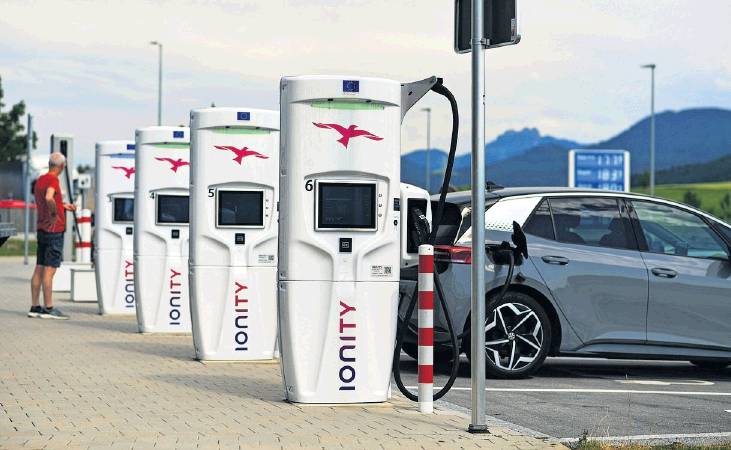EU green chief sets electric car deadline
Mehreen Khan
Brussels| Europe is seeking to stimulate take-up of electric cars by imposing a deadline to phase out the combustion engine and make car makers pay a carbon price as part of a plan to decarbonise the EU economy.
Frans Timmermans, European Commission vice-president for green policy, told the Financial Times that Brussels was preparing a multi-pronged strategy to drive down the cost of electric vehicles and make cleaner cars ‘‘accessible to all Europeans’’.
The commission will present a series of measures this month to ensure the EU can meet its target of reducing average carbon emissions by 55 per cent in 2030, compared with 1990 levels.
Mr Timmermans said the measures would include tightening carbon dioxide emissions standards for new cars sold over the next decade and a proposal for auto makers to pay for polluting under the EU’s market-driven emissions trading scheme.
‘‘We have to do these two things to stimulate the introduction of electric vehicles. We don’t believe that just announcing a cut-off date would do the trick, but that telling the industry – as we’ve been doing all along – that we will come with stricter emission norms is actually sending the message and pushing them into this direction,’’ he said.
An EU official said Brussels was considering a 100 per cent reduction in average carbon dioxide emissions in new cars by 2035 – making it a de facto deadline for the last petrol and diesel cars to be sold in the EU. Volkswagen announced last week it would aim to stop the manufacture of combustion engine vehicles in Europe by 2035.
EU car emissions standards faced fierce lobbying from vehicle makers when a targeted 37.5 per cent carbon dioxide reduction for 2030 was first agreed on in 2018. This is likely to be revised up to 60 per cent for 2030 and 100 per cent in 2035, said the official.
The EU is aiming to become the first major region to hit net zero carbon emissions by 2050. Brussels will propose 13 legislative measures on July 14 to translate the goal into a legal reality. The legislation will need to be approved by a majority of MEPs and the EU’s 27 member states to come into force.
Mr Timmermans said the industry’s approach had ‘‘changed completely’’ as the sector invested in low emissions battery technology. Electric vehicles made up around 11 per cent of new EU car registrations in 2020, tripling from the previous year, according to the European Environment Agency.
‘‘The car industry has really embraced the idea that they need to decarbonise. There’s always going to be a discussion at what pace but I think they’ve understood that this is the way forward’’, he said.
The existing stock of the ‘‘dirtiest’’ vehicles on the road should also be disincentivised by including automakers in the bloc’s carbon pricing system, Mr Timmermans said. Brussels is preparing plans to include transport and housing in a smaller cap-and-trade carbon market, where sectors have to buy and sell carbon credits based on their emissions.
The carbon price proposal has been criticised by governments in poorer parts of the EU for disproportionately penalising lower-income consumers who cannot easily switch to electric vehicles or alternative modes of green transport. Mr Timmermans said Brussels would try to convince member states of the merits of the system by proposing a Climate Action Social Fund that would use a ‘‘substantial’’ portion of proceeds from the housing and transport carbon market to cushion the blow for worst-hit households.
Mr Timmermans, a Dutch social democrat, said that while there were fears of a repeat of France’s 2018 protests against planned rises in petrol taxes, emissions in the transport sector had gone up in recent years. Poorer eastern European countries have also warned that their fossil-fuel reliant economies risk being penalised by the rapid pace of decarbonisation.
‘‘The sense of urgency is not the same everywhere in Europe. If your overarching concern is [making it to] the end of the month, then the end of life on Earth is not something you think about every day’’ he said. ‘‘Whatever we present has to be credible from a social point of view. This is arguably the biggest transformational operation in living memory. It will be tough.’’
The commission will also respond to demands for more comprehensive electric charging infrastructure across the EU after research showed that three countries – France, the Netherlands and Germany – hosted 70 per cent of all car charging points in the bloc.
Mr Timmermans said the EU’s current target of 1 million charging points by 2025 was ‘‘modest’’ and that Brussels would propose stricter requirements for charging points within smaller geographic proximities later this month.
